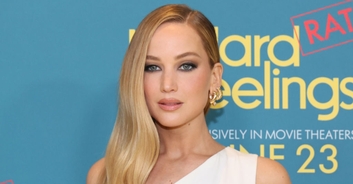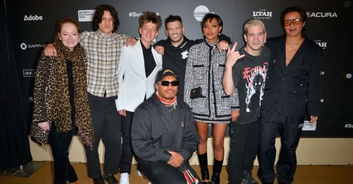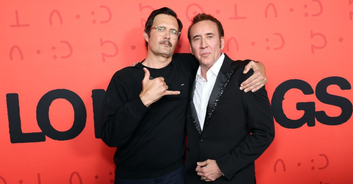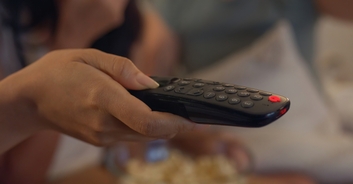One glance at the trailer of Jordan Peele's new horror film Us tells you that it's destined to leave audiences running past the mirror, terrified of their own reflection and rocking themselves to sleep each night.
But perhaps what comes as slightly more of a surprise is the "emotional" toll the movie took on lead actress Lupita Nyong'o.
Speaking on the Radio 1Xtra breakfast show, the Oscar winner admitted that it was "exhausting" playing two different versions of the same character, and claimed she reached "breaking point" during filming, saying: "This movie stretched me, it bent me, it cost me a whole lot."

The star, who won the Best Supporting Actress Academy Award for her role as Patsey in the film 12 Years a Slave, claimed she had to let out her "inner monster" while making Us and had a "moment of rupture."
"It was technically very challenging," she said. "We're playing against ourselves. The way in which things had to play out was so specific. It took its emotional toll on me. I definitely had a moment of rupture while making this movie."
The psychological thriller sees Lupita star as Adelaide Wilson, a woman returning to her beachside childhood home with her husband, Gabe (Winston Duke), and their two children (Shahadi Wright Joseph and Evan Alex) for an idyllic summer getaway.
Haunted by an unresolved trauma from her past and shaken by a string of eerie coincidences, the mother experiences growing paranoia and becomes increasingly certain that something bad is going to happen to her family.
After spending a tense beach day with their friends, the Tylers (Elisabeth Moss, Tim Heidecker, Cali Sheldon and Noelle Sheldon), Adelaide and her family return to their vacation home. Upon nightfall, the family discover the silhouette of four figures holding hands as they stand in the driveway: doppelgängers of themselves.
In order to ensure her second character, doppelgänger Red, sounded distinctive, Lupita mimicked a voice condition called spasmodic dysphonia, a disorder in which the muscles that generate a person's voice go into periods of spasm. This often results in breaks or interruptions in the voice, sometimes every few sentences, which can make a person difficult to understand.
Changing her voice for the role took dedication - something the 36-year-old saw through by working with a therapist to make sure she didn't damage her vocal cords and indulging in some method acting on set.

"It's a condition that's brought about by trauma, sometimes emotional, sometimes physical and sometimes inexplicable," she said. "It's where your vocal cords start to spasm and they create this irregular abrupt pattern of air. So I had experienced someone speaking with that condition and I got curious about it."
She added: "I went a little more method than I usually do where I stayed in the vocal posture for the whole day and I would remain isolated in a room festering."
Us hits cinemas today - so, what are you waiting for? It's time to go watch your worst nightmares unfold on the big screen!





